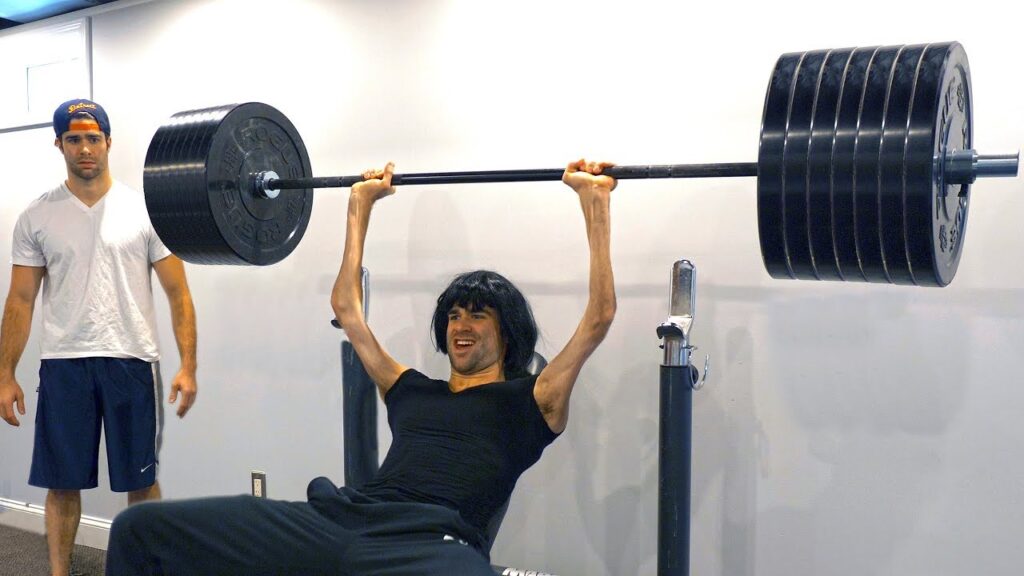Fat loss dieting comes with many difficult challenges. It will challenge you psychologically, physically, and can take you to the wire.
There are various positive habits you can adopt to prevent you from derailing your fat loss dieting efforts, but there are two almost-inevitable features — not bugs — that you must expect for when dieting to lose fat for prolonged periods of time.
Your body is a sophisticated machine with various in-built features to prepare you for the worst.
That is, in pre-industrial times.
Our bodies haven’t caught up to the abundance brought about by an industrial society and agricultural mass production.
And that’s not to mention the nutritional challenges we face on a daily basis since the dawn of ultra-processed food, seed oils, and refined sugar.
The Three Things You Need to Prepare for When Dieting for Fat Loss
If you’ve been in a caloric deficit for a long time, you will need to prepare for three things: elevated cortisol levels, reduced testosterone levels, and a loss of muscle mass.
Now, this isn’t the end of the world or a reason to panic, but your body’s natural reaction to survive as long as possible during difficult times.
These times would be strife or famine — where food sources may be limited, thus forcing you to consume fewer calories.
Our bodies don’t prepare for our fashionable whims to lose fat after deliberate excess or the bulk and cut cycle.
1. Elevated Cortisol Levels

In pre-industrial times, cortisol — a fight or flight reaction, the stress hormone — is a positively good thing.
Why?
Because it prevents you from starving to death as quickly by slowing down your basal metabolic rate.
However, it’s a disastrous killer in our developed industrial world where food isn’t presupposed by a hunt or foraging. And no, queuing at McDonald’s doesn’t count.
Read our article on cortisol for more information.
Thankfully, modern society has produced some answers to reducing your cortisol levels, namely through supplementation.
Magnesium and Ashwaghanda are two great supplements that can help you destress when the going gets tough.
You can also try cold exposure and directly addressing sources of stress such as areas of your social or work life.
2. Reduced Testosterone Levels

Partly due to spiking cortisol levels, you will experience a dip in your natural testosterone production when dieting to lose fat — almost paradoxically — but especially if your goal is to get to a single digit bodyfat percentage.
There are various ways to remedy this:
- supplementing a test booster such as Tongkat Ali, Bulbine Natalensis, but they are often suboptimal methods for long term success
- improving your sleep schedule
- consuming more saturated fat
- lifting heavy weights
- getting more sun
- having more sex
Many of these suggestions, in particular, those that do not pursue an exogenous pathway (non-supplementation) are kinda like going against the grain.
Until you’ve reached your goal weight and can return to consuming a higher caloric intake, we recommend combatting the symptoms of lower testosterone instead.
Some symptoms that may arise include:
- Lower libido
- Lower energy levels
- Less mental clarity
- Tiredness
As these symptoms arise, you can consume stimulants such as caffeine to help you through tiring cardio sessions or a workout when you’re a little depleted.
3. Muscle Loss

This final point is inevitable when dieting to lose fat — especially long term or with a view to get into single digit body fat territory.
When you’re dieting to lose fat, you should strive to train in a way that gives you the most bang for your buck.
In other words, you should pick highly stimulating exercises with low fatigue — check out our article on training for fat loss.
The other things you can do are: 1) eat at the smallest caloric deficit possible to reach your goals and 2) keep your protein intake high.
For long term fat loss, to preserve as much lean muscle mass as possible, you should aim to lose no more than roughly 1-1.5lb per week. This translates to a 500-750 calorie per day deficit.
Finally, you should keep your protein intake high as this will help prevent muscle wastage in a caloric deficit as well as keeping you full throughout your cut. Aim to hit 1-1.2g of protein per pound of body weight.

Don’t hesitate to email us at [email protected] for personalized coaching and a client questionnaire if you’d like DEDICATED tailor-made personal training on strength training, building muscle, losing fat, developing athleticism, and more — all to your liking, lifestyle, habits, and taste!
Otherwise, don’t forget to claim your FREE eBook detailing how to lose 20lb of fat while building muscle in 12 weeks! You can claim it here.
Alternatively, you can pick up a FREE eBook on fundamental strength principles offering an introductory workout program.











